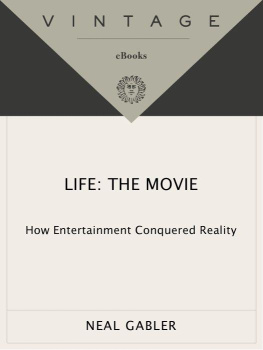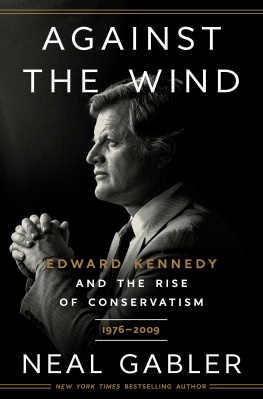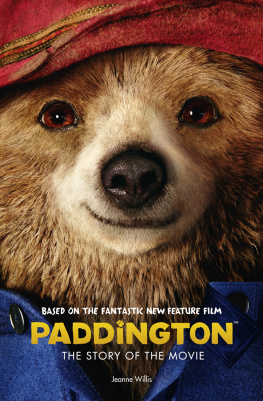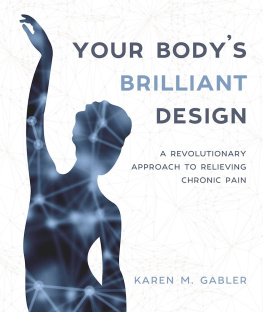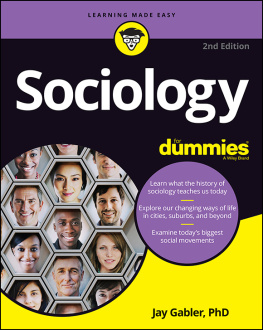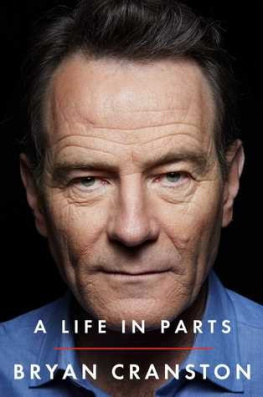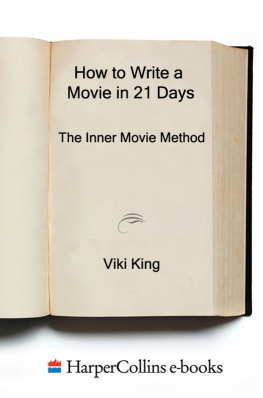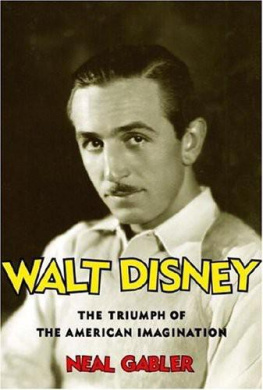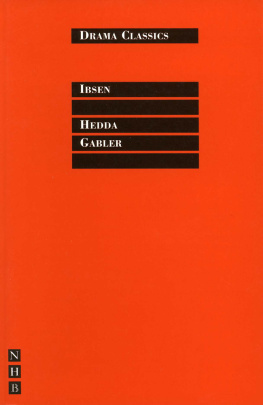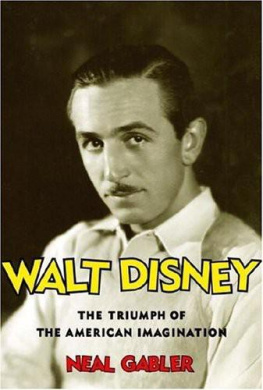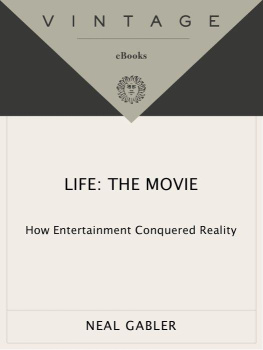Gabler - Life: the Movie
Here you can read online Gabler - Life: the Movie full text of the book (entire story) in english for free. Download pdf and epub, get meaning, cover and reviews about this ebook. publisher: Vintage, genre: Religion. Description of the work, (preface) as well as reviews are available. Best literature library LitArk.com created for fans of good reading and offers a wide selection of genres:
Romance novel
Science fiction
Adventure
Detective
Science
History
Home and family
Prose
Art
Politics
Computer
Non-fiction
Religion
Business
Children
Humor
Choose a favorite category and find really read worthwhile books. Enjoy immersion in the world of imagination, feel the emotions of the characters or learn something new for yourself, make an fascinating discovery.
Life: the Movie: summary, description and annotation
We offer to read an annotation, description, summary or preface (depends on what the author of the book "Life: the Movie" wrote himself). If you haven't found the necessary information about the book — write in the comments, we will try to find it.
Gabler: author's other books
Who wrote Life: the Movie? Find out the surname, the name of the author of the book and a list of all author's works by series.
Life: the Movie — read online for free the complete book (whole text) full work
Below is the text of the book, divided by pages. System saving the place of the last page read, allows you to conveniently read the book "Life: the Movie" online for free, without having to search again every time where you left off. Put a bookmark, and you can go to the page where you finished reading at any time.
Font size:
Interval:
Bookmark:

Neal Gabler
Life the Movie
Neal Gabler is the author of An Empire of Their Own: How the Jews Invented Hollywood, for which he won the Los Angeles Times Book Prize for History, and Winchell: Gossip, Power and the Culture of Celebrity, which was a finalist for the National Book Critics Circle Award and was named nonfiction book of the year by Time magazine. Mr. Gabler holds advanced degrees in film and American culture and has been a recipient of a Guggenheim Fellowship and a Freedom Forum Fellowship. He was born in Chicago and lives with his wife and two daughters in Amagansett, New York.
ALSO BY NEAL GABLER
Winchell: Gossip, Power
and the Culture of Celebrity
An Empire of Their Own:
How the Jews Invented Hollywood

FIRST VINTAGE BOOKS EDITION, MARCH 2000
Copyright 1998 by Neal Gabler
All rights reserved under International and Pan-American Copyright Conventions. Published in the United States by Vintage Books, a division of Random House, Inc., New York, and simultaneously in Canada by Random House of Canada Limited, Toronto. Originally published in hardcover in the United States by Alfred A. Knopf, Inc., New York, in 1998.
Vintage and colophon are registered trademarks of Random House, Inc.
The Library of Congress has cataloged the Knopf edition as follows:
Gabler, Neal.
Life the movie: how entertainment conquered reality / by Neal Gabler.1st ed.
p. cm.
eISBN: 978-0-307-77325-8
1. Motion picturesSocial aspectsUnited States.
2. Motion picturesUnited StatesInfluence.
3. Television broadcastingUnited StatesInfluence. I. Title.
PN1995.9.S6G23 1998
302.23430973dc21 98-36699
www.vintagebooks.com
v3.1
Once again,
for my beloved daughters,
Laurel and Tanne,
And for all those
on the other side of the glass
What if the world is some kind ofof show! What if we are all only talent assembled by the Great Talent Scout Up Above! The Great Show of Life! Starring Everybody! Suppose entertainment is the Purpose of Life!
P HILIP R OTH
On the Air (1970)
T HOUGH HE couldnt possibly have known it at the time, in 1960 the novelist Philip Roth posed what would become one of the central questions of our age: How could fiction possibly compete with the stories authored by real life? As anyone could see from browsing the daily newspapers, life had become so strange, its convolutions so mind-boggling that, Roth lamented, the American writer in the middle of the twentieth century has his hands full in trying to understand, and then describe, and then make credible much of American reality. It stupefies, it sickens, it infuriates, and finally it is even a kind of embarrassment to ones own meager imagination. The actuality is continually outdoing our talents, and the culture tosses up figures almost daily that are the envy of every novelist.
At virtually the same time Roth was describing the challenge of reality to fiction, historian Daniel Boorstin, in his pathbreaking study The Image: A Guide to Pseudo-Events in America, was describing how everywhere the fabricated, the inauthentic and the theatrical were driving out the natural, the genuine and the spontaneous from life until reality itself had been converted into stagecraft. As Boorstin saw it, Americans increasingly lived in a world where fantasy is more real than reality, and he warned, We risk being the first people in history to have been able to make their illusions so vivid, so persuasive, so realistic that they can live in them.
Roth was talking about real-life melodrama in America, and Boorstin about the deliberate manipulation of reality in America, but both were addressing what, in hindsight, was the same root phenomenon, one that may very well qualify as the single most important cultural transformation in this country in the twentieth century. What they recognized was that life itself was gradually becoming a medium all its own, like television, radio, print and film, and that all of us were becoming at once performance artists in and audiences for a grand, ongoing showa show that was, as Roth noted, often far richer, more complex and more compelling than anything conceived for the more conventional media. In short, life was becoming a movie.
To compare life to a movie is not to say, as the clich has it, that life imitates art, though surely there is truth to that. Nor is it to say that life has devised its own artistic methods and thus reversed the processart imitates lifethough that also is true, as one can see from the number of novels, movies and television programs that have been inspired by real-life events. Rather it is to say that after decades of public-relations contrivances and media hype, and after decades more of steady pounding by an array of social forces that have alerted each of us personally to the power of performance, life has become art, so that the two are now indistinguishable from each other. Or, to rework an aphorism of the poet Stphane Mallarm, the world doesnt exist to end in a book; when life is a medium, books and every other imaginative form exist to end in a world.
One need look no further than the daily news to realize how true this is now. It does not minimize the media excesses of the penny press, the yellow press and the original tabloids, to recognize that in the nearly forty years since Roths essay the news has become a continuous stream of what one might call lifiesmovies written in the medium of life, projected on the screen of life and exhibited in the multiplexes of the traditional media which are increasingly dependent upon the life medium. The murder trial of former football star O. J. Simpson, the life and death of Diana, Princess of Wales, the ongoing soap-operatic sagas of Elizabeth Taylor or television talk show hostess Oprah Winfrey, the shooting of Long Island housewife Mary Jo Buttafuoco by her husbands seventeen-year-old paramour, the bombing of the federal office building in Oklahoma City by right-wing dissidents, the repeated allegations of extramarital dalliances by President Bill Clinton, to name only a handful of literally thousands of episodes life generatesthese are the new blockbusters that preoccupy the traditional media and dominate the national conversation for weeks, sometimes months or even years at a time, while ordinary entertainments quickly evanesce.
But however much we may be preoccupied with them, it is not just these lifies that make life a movie. As Boorstin observed, the deliberate application of the techniques of theater to politics, religion, education, literature, commerce, warfare, crime, everything, has converted them into branches of show business, where the overriding objective is getting and satisfying an audience. Acting like a cultural Ebola virus, entertainment has even invaded organisms no one would ever have imagined could provide amusement. Dr. Timothy Leary, onetime proponent of hallucinogens, turned his death into entertainment by using his computer Web page to chronicle his deterioration from prostate cancer, a show which ended with a video of him drinking a toxic cocktail in what he called a visible, interactive suicide. A group of teenage thugs in Washington, D.C., videotaped their depredations, even posing for the camera after beating a victim while an audience of bystanders cheered. And one enterprising entrepreneur converted a former Nazi command post on the eastern front in Poland into a theme resort, while another planned an amusement park outside Berlin with the motif of East Germany under communism.
Font size:
Interval:
Bookmark:
Similar books «Life: the Movie»
Look at similar books to Life: the Movie. We have selected literature similar in name and meaning in the hope of providing readers with more options to find new, interesting, not yet read works.
Discussion, reviews of the book Life: the Movie and just readers' own opinions. Leave your comments, write what you think about the work, its meaning or the main characters. Specify what exactly you liked and what you didn't like, and why you think so.

